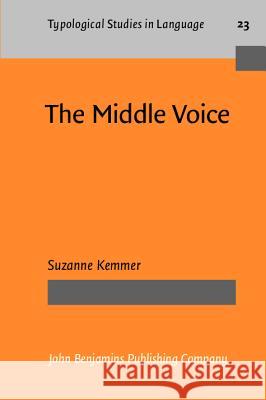The Middle Voice » książka
The Middle Voice
ISBN-13: 9789027229083 / Angielski
The Middle Voice
ISBN-13: 9789027229083 / Angielski
(netto: 240,83 VAT: 5%)
Najniższa cena z 30 dni: 251,87 zł
ok. 30 dni roboczych.
Darmowa dostawa!
This book approaches the middle voice from the perspective of typology and language universals research. The principal aim is to provide a typologically valid characterization of the category of middle voice in terms of which it can be incorporated in a cognitively-based theory of human language. The term "middle voice" has had a wide range of applications in the linguistic literature of this century. The main thesis in this volume is that there is a coherent, though complex, semantic category of middle voice in human language, which receives grammatical instantiation in many languages. The author claims there is a semantic property crucial to the nature of the middle, which she terms "relative elaboration of events," that serves as a parameter along which the reflexive and the middle can be situated as semantic categories intermediate in transitivity between one-participant and two-participant events, and which differentiates reflexive and middle from one another. In this area, most analyses deal with one language and/or are limited to Indo-European languages. This work deals with a subset of middle-marking languages that was chosen so as to observe the highest possible number of different middle systems showing significant independent diachronic development.











